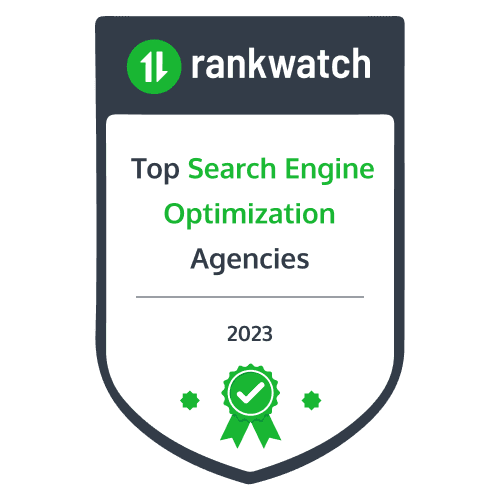In this ever-evolving landscape, staying ahead of the curve and harnessing the power of a well-crafted marketing strategy is essential. Your business can find its footing online with a clear plan and direction. But fear not, as this guide will help you build your marketing strategy from the ground up, ensuring you stand out from the crowd and achieve your goals.

Introduction
A marketing strategy is a comprehensive plan outlining the objectives, tactics, and resources needed to promote your business effectively. It is the backbone of any successful marketing effort and provides a blueprint for achieving your goals. A good marketing strategy should be flexible, adaptable, and based on solid research and analysis.
In today’s digital age, a marketing strategy must incorporate online and offline techniques to ensure your message reaches your target audience, wherever they may be. This is where the concept of a digital marketing strategy comes into play. By focusing on online channels and tactics, you can leverage the immense potential of the internet to grow your business and reach new heights.
The Importance of a Digital Marketing Strategy
Digital marketing is no longer a luxury – it’s a necessity. With increasing consumers relying on the Internet for information, entertainment, and shopping, businesses must adapt their marketing strategies to stay relevant and competitive. By embracing digital marketing, you can:
- Reach a larger and more diverse audience
- Engage with your customers in real time.
- Track and measure your marketing efforts to optimize ROI
- Enhance your brand’s online presence and reputation.
- Stay ahead of your competitors.
Critical Components of a Winning Marketing Strategy
You must focus on several key components to create a successful digital marketing strategy. Each element is crucial in ensuring your marketing efforts are well-rounded and effective. These components include:
- Defining your target audience and setting goals
- The Role of Content in your marketing strategy
- Utilizing SEO and keyword research effectively
- Embracing social media in your marketing strategy
- Leveraging email marketing and automation
- The power of analytics and tracking your progress
- Adapting and refining your marketing strategy over time
Let’s explore each of these components in more detail.


Defining Your Target Audience and Setting Goals
Before diving into the specifics of your marketing strategy, it’s vital to understand your target audience clearly. Knowing who you’re trying to reach and what motivates them will help you craft messages and choose tactics that resonate with them.
Consider demographics, psychographics, and online behaviors to define your target audience. This information will help you create buyer personas and fictional representations of your ideal customers.
Once you’ve identified your target audience, it’s time to set specific, measurable, attainable, relevant, and time-bound (SMART) goals for your marketing strategy. These goals will serve as a roadmap for your marketing efforts and provide a clear vision of what you hope to achieve. Examples of SMART goals include increasing website traffic by a certain percentage within a specific timeframe or growing your email subscriber list by a specific number within a set period.
The Role of Content in Your Marketing Strategy


Content is king in the digital marketing world. It is the foundation of your marketing efforts, providing value to your target audience and establishing your brand as an authoritative voice in your industry. High-quality content can help you attract, engage, and convert your target audience, ultimately driving business growth.
A successful content marketing strategy should include various content types, such as blog posts, videos, podcasts, infographics, and social media updates. By diversifying your content offerings, you can appeal to broader audience preferences and keep your followers engaged.
To ensure that your content remains relevant and engaging, always keep your target audience and their needs in mind. Focus on creating content that solves their problems, answers their questions, and provides them with valuable insights. Doing so can foster trust and loyalty among your audience, setting the stage for long-term growth.
Utilizing SEO and Keyword Research Effectively


Search engine optimization (SEO) is crucial to any digital marketing strategy. By optimizing your website and content for search engines, you can increase your visibility in search results, drive more organic traffic to your site, and improve your chances of attracting and converting your target audience.
Keyword research is an essential part of effective SEO. By identifying the terms and phrases your target audience uses to search for information related to your business, you can optimize your content to rank for those keywords. This will help you attract more qualified leads and improve your chances of conversion.
There are several SEO and keyword research tools available that can help you identify the most relevant keywords for your business. You can analyze keyword search volume, competition, and relevance using these tools to ensure you’re targeting the correct terms.
Embracing Social Media in Your Marketing Strategy


Social media has become integral to modern marketing strategies, allowing businesses to connect personally with their target audience. By leveraging the power of social media, you can:
- Increase brand awareness and reach
- Engage with your audience in real-time
- Share valuable content and showcase your expertise
- Drive traffic to your website
- Generate leads and sales
To make the most of your social media efforts, choose the platforms that align with your target audience’s preferences and interests. Focus on creating engaging, shareable content that encourages interaction and fosters a sense of community.
Consider leveraging paid social media advertising to extend your reach and target specific audience segments. This can help you achieve your marketing goals more quickly and efficiently.
Leveraging Email Marketing and Automation


Email marketing remains one of the most effective digital marketing tactics, offering direct communication with your target audience. By building and nurturing your email list, you can:
- Share valuable content and updates with your subscribers.
- Promote your products or services.
- Encourage repeat business and customer loyalty.
- Drive traffic to your website.
To maximize your email marketing efforts, create personalized, relevant, and timely content that appeals to your subscribers’ needs and interests. Segment your list based on demographics, behavior, and engagement to ensure you deliver the right message to the right person at the right time.
Email marketing automation can help you streamline your campaigns and improve efficiency. By automating certain aspects of your email marketing, such as welcome emails, cart abandonment reminders, or promotional offers, you can save time and resources while still providing a personalized experience for your subscribers.
The Power of Analytics and Tracking Your Progress


Without a robust system for tracking and analyzing your progress, no marketing strategy is complete. By monitoring key performance indicators (KPIs) and utilizing analytics tools, you can:
- Measure the effectiveness of your marketing efforts
- Identify areas for improvement
- Optimize your campaigns for better results
- Make data-driven decisions to fuel your business growth
Some essential KPIs to track include website traffic, conversion rates, click-through rates, engagement metrics, and return on investment (ROI). Numerous free and paid analytics tools can help you track and analyze your marketing efforts. Google Analytics is a popular choice, providing valuable insights into website traffic, user behavior, and conversion rates. Social media platforms also offer analytics tools that can help you track engagement, reach, and audience demographics.
Regularly reviewing your analytics data allows you to continually adapt and refine your marketing strategy, making data-driven decisions to improve your results.
Adapting and Refining Your Marketing Strategy Over Time
A successful marketing strategy is not set in stone. It’s essential to be open to adapting and refining your tactics over time based on the results you’re seeing and changes in the market. By regularly reviewing your analytics, tracking your progress, and staying informed about industry trends, you can identify areas for improvement and adjust your strategy accordingly.
It’s also crucial to remain flexible and agile in your approach. Be willing to experiment with new tactics, test different messaging and content types, and adjust your targeting based on your audience’s behavior. Doing so lets you stay ahead of the curve and ensure your marketing efforts remain relevant and practical.
Top Digital Marketing Strategy Resources and Tools
Now that you have a solid understanding of the critical components of a winning marketing strategy, it’s time to explore some of the top resources and tools available to help you execute your plan effectively. Some of the best resources and tools for digital marketing include:
- HubSpot: A comprehensive marketing automation platform that offers tools for email marketing, social media management, lead generation, and analytics.
- Google Analytics: A free analytics tool that provides insights into website traffic, user behavior, and conversion rates.
- SEMrush: A powerful SEO tool that offers keyword research, competitor analysis, and content optimization features.
- Hootsuite: A social media management platform that allows you to schedule posts, track engagement, and analyze performance across multiple platforms.
- Canva: A free graphic design tool that makes creating professional-looking graphics and images for your marketing campaigns easy.
Utilizing these resources and tools can streamline your marketing efforts, save time and resources, and achieve better results.
Conclusion
Congratulations! You now have a solid understanding of the critical components of a winning marketing strategy and the resources and tools available to help you execute your plan effectively. By defining your target audience, creating valuable content, utilizing SEO and social media, leveraging email marketing, tracking your progress, and adapting your strategy over time, you can ignite your online presence and achieve your marketing goals.
With a well-crafted marketing strategy and the right resources and tools, you can stand out, connect with your target audience, and achieve your business goals. Good luck!
Still not sure about your marketing strategy? Contact Markitome today!



We hope you’re enjoying reading our blogs… Don’t forget to secure your browsing experience with Nord VPN. Click the banner below to learn more
More To Explore
Redefining Digital Marketing in 2024: 10 Game-Changing Trends
In the ever-evolving world of digital marketing, staying ahead of the curve is essential. As we approach 2024, it’s crucial to be aware of the
SEO Mania-7 Proven Strategies for Explosive SEO Growth in 2024
Understanding the Importance of SEO in 2024 In the ever-evolving world of SEO, staying ahead of the curve is crucial to your online success. As